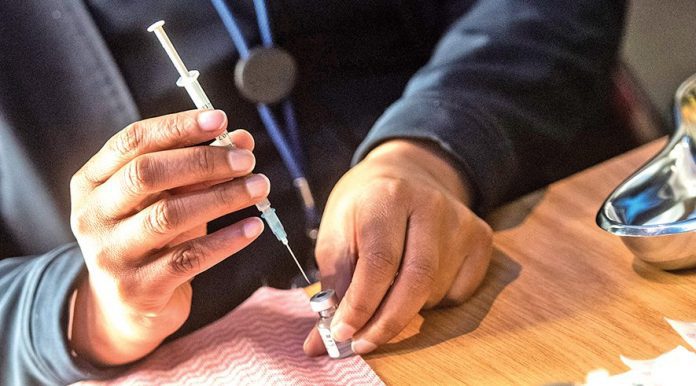Johannesburg – The South African department of health has announced it will stop contact tracing and end quarantine for asymptomatic cases because containment of the virus is ‘no longer viable’.
The department stated in a recently updated memorandum that the “containment strategies are no longer appropriate” and that a mitigation strategy is the only viable way to curb transmission of the virus, especially in the context of the new Omicron variant.
See below the new Covid-19 rules:
Contact tracing:
People who have been in contact with a positive Covid-19 case can continue with their normal duties but with heightened monitoring such as; daily temperature testing, symptom screening of any early signs, and should be tested should they develop symptoms.
Quarantine for contacts of confirmed cases:
Quarantine for both vaccinated and unvaccinated contacts of confirmed cases to be halted with immediate effect. No testing is required unless the contact develops symptoms.
Isolation:
Asymptomatic cases are not required to isolate but must self-observe for symptoms in the five to seven days after contact with a positive case. Furthermore, they must observe covid precautions such as wearing masks and social distancing.
Cases with mild symptoms are required to isolate for eight days.
While severe cases – requiring hospitalisation – must isolate for 10 days after they have been stabilised by doctors. Health care workers who tested positive with mild or severe symptoms must wear a N95 mask when they return to work and avoid close contact with extremely high-risk patients where possible.
In addition, those with mild are not required to take a covid test before returning work, provided the eight or ten-day isolation has been observed.
In conjunction, the department has also announced that it will start administering the Johnson & Johnson (J&J) booster shot from Thursday on Christmas eve.
The department noted in a statement that the South African Health Products Regulatory Authority (SAHPRA) has approved the use of the Pfizer vaccine as a booster of the primary two-dose series some time ago.
In addition, SAHPRA also approved the use of the J&J vaccine for boosters of the single-dose primary J&J schedule at least 2 months after primary vaccination.
“The recommended interval is after 2 months but preferably before 6 months from the primary dose.
From 28th December 2021, the National Vaccination Programme will provide Pfizer booster vaccinations to anyone who received their last dose at least 6 months since the second primary dose.
Booster doses are the same vaccine in the same dose administered to people who have had a primary vaccination series and are administered to allow the body to boost its immunity to the COVID-19 virus,” the department concluded.
To read more political news and views, click here.
Follow @SundayWorldZA on Twitter and @sundayworldza on Instagram, or like our Facebook Page, Sunday World, by clicking here for the latest breaking news in South Africa. To Subscribe to Sunday World, click here.



